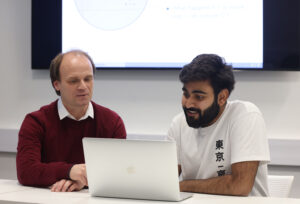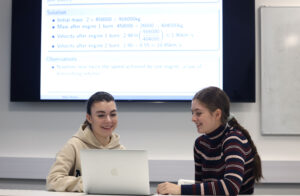If you study Actuarial Science BSc at XJTLU you can study Actuarial Mathematics at the University of Liverpool on the XJTLU 2+2 programme. or see all XJTLU 2+2 programmes.
Actuarial Mathematics BSc (Hons): XJTLU 2+2 programme
Studying Actuarial Mathematics at Liverpool will allow you to take your career in any number of directions. Choose this programme and you will become an expert in using mathematical models to solve financial problems.








